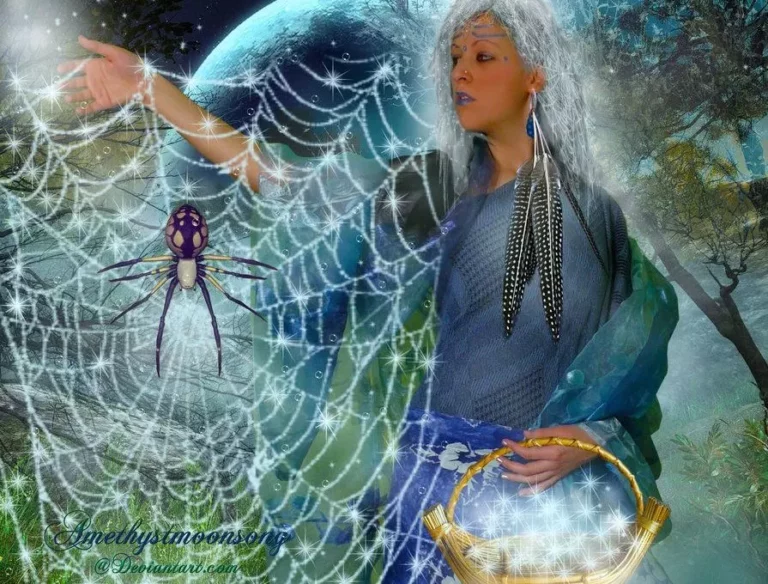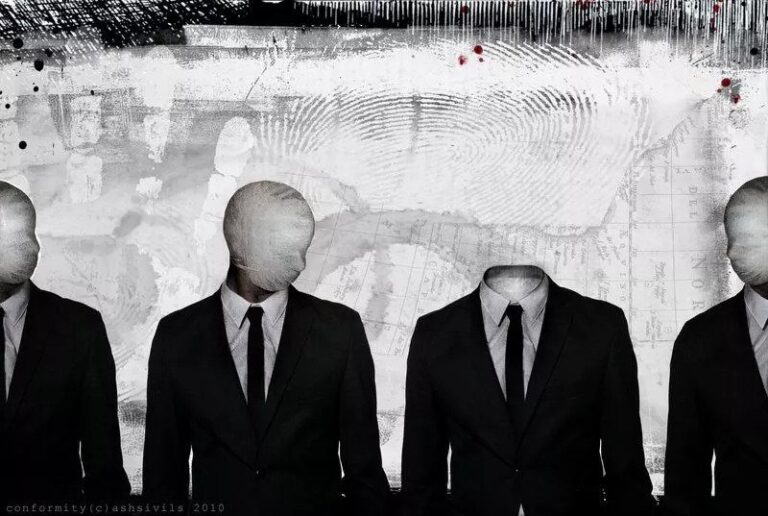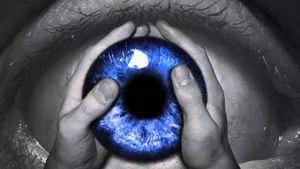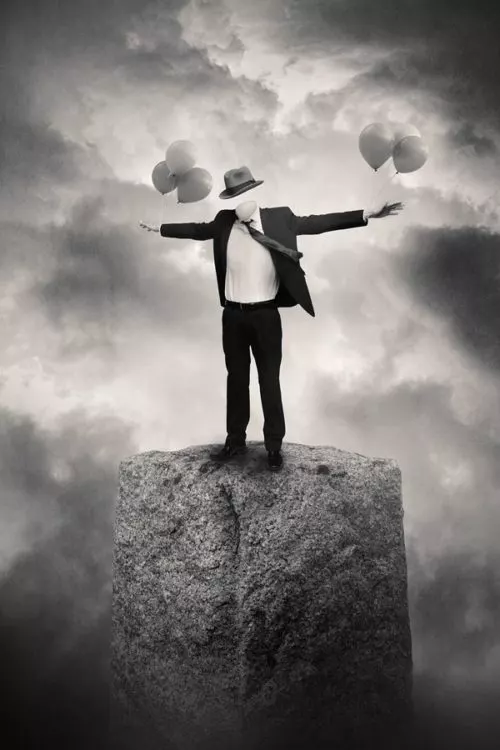“Yet mystery and manifestations arise from the same source. This source is called darkness… darkness within darkness, the gateway to all understanding.” ~ Lao Tzu
(Read Becoming a Beacon of Dark in the Blinding Light for the difference between a beacon of light and a beacon of darkness.)
1) You are stronger for having survived a Dark Night of the Soul
“When you see your matter going black, rejoice, for this is the beginning of the work.” ~ Rosarium Philosophorum
You have learned how to make your darkness shine. Your Dark Night was what Jungian analyst Mark Welman calls an ontological “pivot point,” a perspective in which death is also jouissance and egocide is linked to creativity.
In this sense, death means new life: a joyous rebirth. You understand that your ego’s death was merely the death of your codependent, materialist viewpoint.
In defeat, transformation. In death, new life (rebirth).
You have freed yourself to experience an imaginative and poetic life, a life beyond life, and a movement into psychological depth and a transformation of the soul. Having experienced “the darkness darker than darkness” of the Black Sun, your soul has been lit with a luminosity so bright it eclipses the sun.
You are paradoxical: simultaneously blackness and luminescence. Mind and No-mind, Self and No-self. So be it. You’ve merely embraced being fully human.
2) Your shadow has become your sidekick
“The great epochs in our lives are at the points when we gain the courage to re-baptize our badness into the best in us.” ~ Nietzsche
You are adept at transforming demons into diamonds. You’ve rebaptized your badness into your best. Having survived your Dark Night, having transformed darkness into light and vice versa, you have emerged as a paradoxical being dancing in yin-yang delight with your shadow.
You realize that darkness was not a thing to overcome, necessarily, but a thing to be transformed by and learned from; a thing to be planted into and grown out of into greater human flourishing. As James Hillman noted, “Shadow is not washed away and gone but is built into the body of the psyche.” Indeed. Your shadow was the divine spark buried in the darkness: your animating principle.
Allied with your shadow, you exhibit your own kind of lustration that contains both darkness and light. The filius philosophorum emerges, the child of philosophy is born (daughter/son of moon/sun). Individuation, the mysterium coniunctionis (a union of opposites) is at hand. An alchemical light illuminates all things, which is like no other light in the whole world.
3) You live dangerously by turning the tables on fear
“It matters how well you lived, not how long. And often the “well” lies in not living long.” ~ Seneca
You live adventurously. Your shadow has given you a sharpness that cuts through fear. You are not afraid to take strategic risks. You are not afraid to fail. For, if the Dark Night taught you anything, it taught you that failure teaches astronomically more than success ever could.
As such, you also live paradoxically. Understanding, as Jungian analyst Neil Micklem did, that, “paradox enriches, because only paradox comes near to comprehending the fullness of life, and without it we are inwardly impoverished. When we talk of paradox, we mean the presence of any two conflicting truths present at the same time in consciousness.”
You and your shadow, having emerged from the cocoon of the Dark Night as one, are the personification of this paradox. What destroys us also creates us. And so, you are not shy about shining your dangerous yet healing, paradoxical yet soothing, controversial yet conscious, darklight.
You realize that living dangerously and paradoxically may hurt, sting, enrage, and sometimes depress or even kill you, and yet dangerous and paradoxical experiences must be acknowledged, adventured through, negotiated, and made conscious if any real awareness of the Self is to emerge.
4) You’re adept at melting down golden idols
“In chaos there is fertility.” ~ Anais Nin
You are excellent at knocking self-righteous blowhards off holier than thou high horses. Poking holes in inflated egos is your legerdemain.
Like Sacred Clowns of old, you are not afraid of using contrarian methods of counting coup on other members of the tribe who have become too full of themselves and obese with immoderation. This is where your blacklight shines the brightest.
Your shadow’s light, your midnight sun, shines a mighty klieg light upon the uppity and arrogant fools who think their shit doesn’t stink. Anyone who takes themselves too seriously is blasted by your searing yet sincere black fire. So be it.
As Jung poignantly expresses, “The experience of the Soul is always a defeat for the ego.”
5) You’re not afraid of being an amoral agent
“He is a hard man who is only just, and a sad one who is only wise.” ~ Voltaire
You are an amoral agent par excellence. Morality is too goody-two-shoes for your edginess. Immorality is too evil for your heroic bent. Amorality is just right. A Goldilocks sweet-spot. From your amoral vantage point, you are strategically positioned between worlds, peripheral, keen, and always ready to strike down outdated unhealthy ideals and erect new healthier ones to take their place.
You realize that in order to moralize an otherwise immoral system that we need amoral agency. We need people who are willing to be proactive with the difficult task of tonalizing an atonal world. This requires a particular flavor of courage that may be unpopular but is necessary for things to evolve. Amoral agency flips the tables on the ethical dynamic.
It reveals how the middle ground is the only healthy foundation. It discloses the golden mean. It unleashes the golden ratio. The courageous amoral agent is the desirable middleman between the two extremes of moral cowardice and immoral recklessness.
Recklessness is a Goliath but so is cowardice. You are the amoral agent (David) with a slingshot powerful enough to topple both.
6) Revolution is your evolution
“Accepting the absurdity of everything around us is one step, a necessary experience: it should not become a dead end. It should arouse a revolt that can become fruitful.” ~ Albert Camus
So as not to become a dead end, your response to an absurd reality is to rebel. But you’re not a rebel without a cause. You’re a rebel with a cause. Your cause is healthy, progressive evolution.
You realize that in order to reap a little evolution you must sow a little revolution. But you also understand that a healthy revolution, like healthy evolution, is a slow burn. It doesn’t happen overnight.
So, you’ve risen above the whiney, woe-is-me, bipartisan f*ckery of the outdated system. You politically crush out. Your meta-politics is flexible and adaptable. Your Infinite Game is strong, trumping their pathetic finite game.
Your radical leadership is true. You are willing to be the bridge from Man to Overman. Even if it hurts. Even if you must drag humanity behind you, kicking and screaming. Even if it means everyone crying like little babies over the ashes of tradition, convention, belief, comfort, and security. For innovation, adaptability, and a healthy, progressive evolution for the species is paramount.
7) You use pain and darkness as a guide for spiritual ascent
“There is no coming to consciousness without pain. People will do anything, no matter how absurd, in order to avoid facing their own souls. One does not become enlightened by imagining figures of light, but by making the darkness conscious.” ~ Jung
You do not cling to security and comfort. Growth is painful. Change is even more painful. But being stuck is the worst pain of all, an unnecessary suffering. It is for this reason that pain should not be avoided at the expense of growth.
Rather, growth should be embraced at the risk of pain. Likewise, darkness should not be avoided at the expense of freedom. Freedom should be embraced at the risk of darkness. You understand this.
You realize that life is not easy. And a life well-lived is even less easy. There are trials and tribulations. There are slings and arrows. There are Dark Nights of the Soul. There are unexpected changes that will throw you for a loop.
That’s why you have developed a philosophy for dealing with pain and honoring the darkness, a philosophy that helps you adapt and overcome pain in a healthy way. Better to have a strategy for dealing with pain than none at all.
Better to gain resilience and robustness from the pain than to merely wallow in the misery of a setback.
As Nietzsche said, “I assess the power of a will by how much resistance, pain, and torture it endures and knows how to turn to its advantage.”
In the end, you’ve allowed Pain and Darkness to become your teachers. You’ve flipped the script. The obstacle is the path. They are your guides towards reconditioning outdated conditioning. They are your initiation into heightened states of awareness.
In hindsight, the pain and the darkness were merely footholds disguised as thresholds, leading you toward a healthier, more flexible, more resilient, more spiritually robust individual capable of self-overcoming.
As Leslie Fieger challenges, “Any fool can run toward the light. It takes a master with courage to turn and face the darkness and shine his own light there.”
Image source:
Light worker
Mindful Meditation by Yoga Magazine
Dark Yoga















